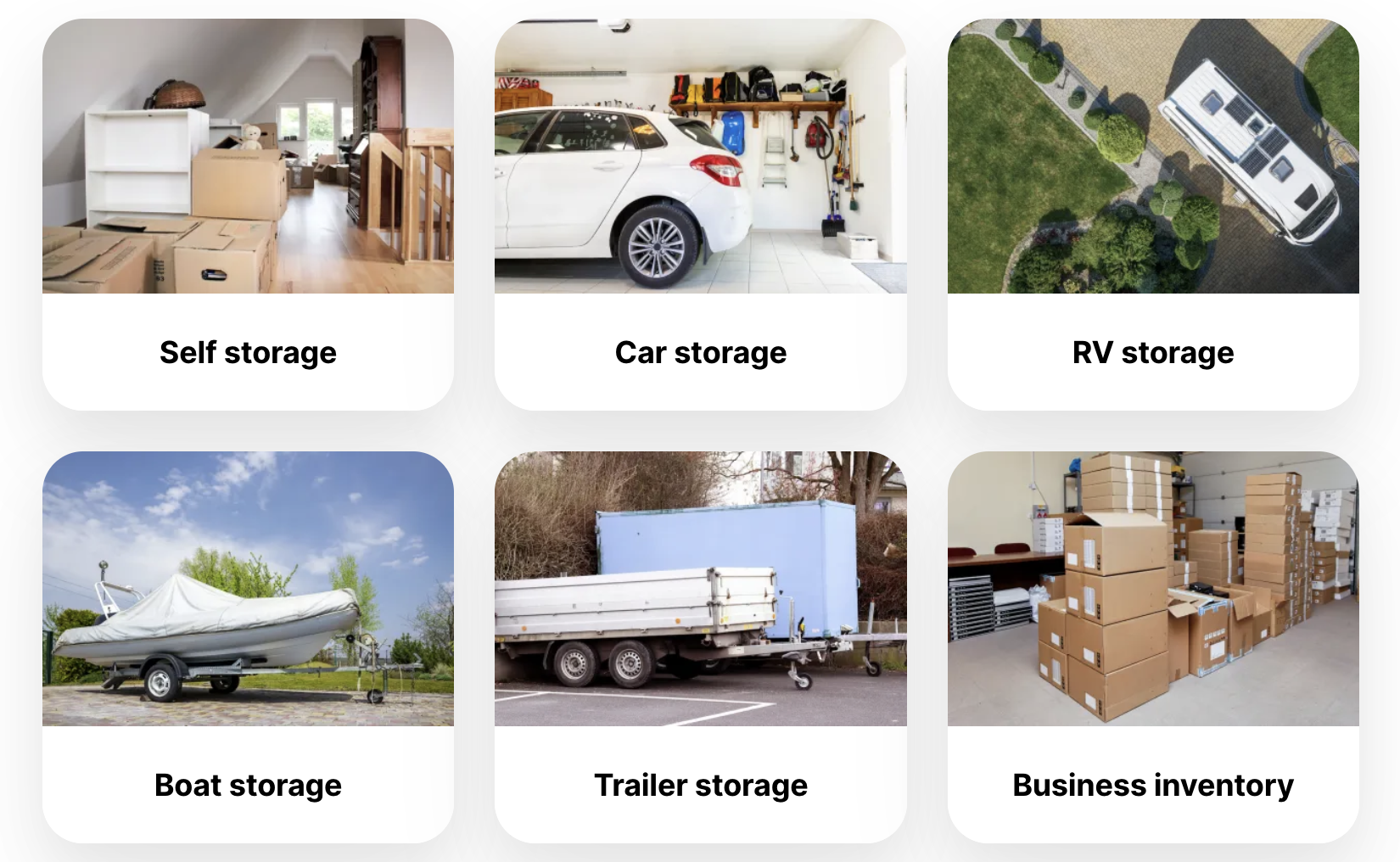
Pictured: Ralph Johnson, Neighbor, Head of Business Development
Over the past decade, previously packed malls, big box stores, and other commercial properties have started to look more like a sprawling hardscape of empty parking lots. The “Retail Apocalypse” accelerated by COVID-19 and the work-from-home phenomenon more recently has also left millions of square feet of shopping centers, retail stores, and office buildings vacant, particularly Class B and C.
Two years later, much of that space has yet to return to pre-pandemic occupancy. And both of these realities reflect a distressing new normal for commercial developers, REITs, leasing companies, and other property owners around the country: an excess of under-utilized and unprofitable space.
Pioneering Storage as a Service at Just The Right Time
“Space as a Service” tech company Neighbor, which re-purposes under-utilized real estate for property owners, developers, and managers through its online platform into safer, closer, more sustainable, and less expensive storage for tenants, has stormed onto the sharing economy scene at just the right time.
“Retailers and REITs have been struggling for a while,” says Ralph Johnson, Neighbor’s Head of Business Development. “The mall industry hasn’t been faring much better either. There is too much parking and unused space without enough traffic and demand.” Johnson notes that for property owners and managers this translates directly into lost income. “COVID-19 amplified all these challenges with the transition to even more e-commerce and at-home delivery. Neighbor was founded to provide a solution to this problem.”
How It Works: Flexibly Satisfying Both Sides Of The Sharing Economy
Neighbor’s business model is built on the simple premise that every commercial property and residential home has under-utilized space that can be deployed to alternative uses to earn extra income, and specifically when it comes to the shared storage economy—much the same way that Airbnb and Uber have done with short-term rentals and car sharing.
On the commercial side, that makes Neighbor the first start-up to solve the occupancy paradox for the country’s largest real estate developers and owners: quickly and seamlessly turning vacancies into an income-producing opportunity, while simultaneously offering them more agility and resilience to withstand economic shocks.
This begins with forming national, regional, and local partnerships with real estate owners and operators that have large portfolios of commercial properties, like brick-and-mortar stores, retail outlets, malls, and office buildings that are vacant or under-utilized. The spaces and parking lots that these companies can’t fill, Neighbor leases through its online platform to companies that need storage for everything from excess inventory and seasonal goods to fleet parking and recycling and container storage.

“We’re solving a key need for real estate owners at the retail and office level right now,” Johnson explains, “Which is to fill the dead space through our platform and partnerships, help them generate extra income, and ultimately juice their net operating income. At the same time we’re also solving an essential problem for companies that need more efficient and better space to store things.”
Once a retail space, office, or parking lot partner is ready to list on Neighbor’s platform, the company’s team quickly divides the space into an optimal unit mix working in concert with each of its partners to achieve the highest and best use of each space, maximize revenue, and reduce wear and tear.
That agile property repositioning model has quickly translated into partnerships with some of the country’s biggest REITS like Brixmor and Federal Realty that both own and manage their assets. Large commercial real estate developers who build mixed-use properties also get leased up quickly on Neighbor, notes Johnson, since the team can easily find storage tenants for both the office and retail spaces as well as guide build-outs from the ground up during pre-construction.
Traditionally, commercial real estate developments, especially mixed-use buildings, take years to design, build, and lease up to full occupancy, Johnson explains. Neighbor quickly helps its partners lease up to full occupancy in a matter of months, not years.
Neighbor Makes Life Easy
In addition to providing income through its platform, Neighbor also makes its partners’ lives easy by working with them through the entire onboarding process. This includes appropriately customizing each space, communicating with local property managers to coordinate access, coordinating security requirements, and aggressively marketing the space to prospective tenants.
When it comes to property protection, disputes, and payments, says Johnson, Neighbor also supports all of its partners with a world-class trust and safety program. “We offer all of our partners $1,000,000 in liability coverage and also guarantee payment from tenants, so if there’s ever an issue we will still auto-deposit rent payments into our partners’ accounts until the issue is resolved. We also have a dedicated team whose sole task is to take care of any partner-tenant disputes in the rare event they occur. Ultimately, our partners only have to onboard space, approve or reject a prospective tenant, and Neighbor handles the rest.”
The Shared Space Future Is Full Service
When it comes to the future of Neighbor’s shared storage model, Johnson is bullish that the potential is almost unlimited—and sometimes surprising. For example, the company now partners with many national church institutions, such as the United Methodist Church.
Church parking leases up super quickly on our platform because they’re considered a safe core part of the community, says Johnson. The same goes for university and municipal lots with empty space, as well as cities and schools that need to fill their vacancies.
For property managers and owners throughout the U.S., Neighbor’s essential pitch is that it’s the only full-service, flexible, turnkey storage solution out there.
“Our partners love that Neighbor can do it all. We can work with any space and list it to each owner’s needs or wants, including restricting access to certain times of day, only storing certain item categories, or catering to specific uses,” Johnson notes. “Most real estate developers or owners would need to partner with two to three companies to achieve what we can under one umbrella”.
Space-wise, that’s quickly making Neighbor real estate’s next big thing.
Click here to discover your commercial or residential properties’ untapped potential


